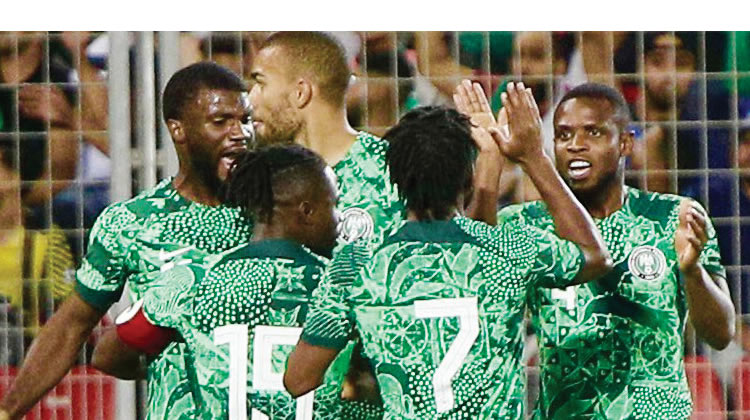Super Eagles captain William Troost-Ekong has vocally condemned the treatment of Nigeria’s senior men’s national football team after they found themselves stranded for over 12 hours at Al Abaq Airport in Libya. This incident occurred when the team, on route to their 2025 Africa Cup of Nations qualifier, was diverted from its intended destination of Benghazi to Al Abaq. Upon arrival, they were held without any explanation or communication from the Libyan authorities, a situation Troost-Ekong characterized as “disgraceful.” His critique highlighted the perceived mistreatment by Libyan officials, who he accused of engaging in what he referred to as “mind games” at the expense of the team’s wellbeing.
In a series of poignant tweets shared early Monday morning, Troost-Ekong articulated the distressing conditions faced by the team during their prolonged detention at the abandoned airport. With no food, water, or means of communication, the players and officials felt abandoned, exacerbated by the Libyan government’s withdrawal of their previously approved landing rights. Troost-Ekong expressed disbelief at such treatment, citing his experience of dealing with challenges while playing in Africa, but arguing that this incident transcended prior experiences in terms of its severity.
Significantly, the captain brought attention to the plight of the Tunisian pilot who had adeptly managed the unexpected landing but was similarly denied accommodations for his crew due to government directives. While the pilot found temporary respite at the airport, the Nigerian crew was relegated to sleeping on the plane, underscoring the inequitable treatment based on nationality. Troost-Ekong’s comments reflected a broader frustration with the disregard shown by Libyan authorities toward the team, stating that even the pilot had never encountered a situation like this despite his extensive experience.
Given the perilous circumstances, Troost-Ekong announced the team’s decision to forego the scheduled match, primarily citing safety concerns and dissatisfaction with the logistics available for their stay in Libya. He urged the Nigerian government to intervene and facilitate the rescue of the stranded players and officials, emphasizing the critical need for their safety amid a backdrop of uncertainty. His rhetoric resonated with a sense of pride and respect for both the team and their opponents, reiterating that the treatment they received did not align with the principles of international football and sportsmanship.
The Super Eagles had traveled to Libya with the intention of contesting the second leg of their Africa Cup of Nations qualifying tie against the Mediterranean Knights. Following a successful first leg, in which they achieved a 1-0 victory in Uyo, the distraction of their unexpected and troubling predicament in Libya heightened tensions. The team’s media unit later confirmed that the Nigerian players and officials were indeed held against their will due to the actions taken by Libyan authorities upon their arrival at Al Abaq Airport, reflecting a troubling escalation in what should have been an organized sporting event.
As the situation continued to unfold, the Confederation of African Football had yet to provide any comment or intervention regarding the plight of the Super Eagles. The absence of a timely response from the governing body added an additional layer of uncertainty to an already precarious scenario. With calls for accountability and a resolution growing louder, the focus remained on the welfare of the players and officials, who had found themselves ensnared in a situation far removed from the spirit of the game they were there to play. The whole incident served as a reminder of the challenges athletes sometimes face while representing their nations on the international stage.


